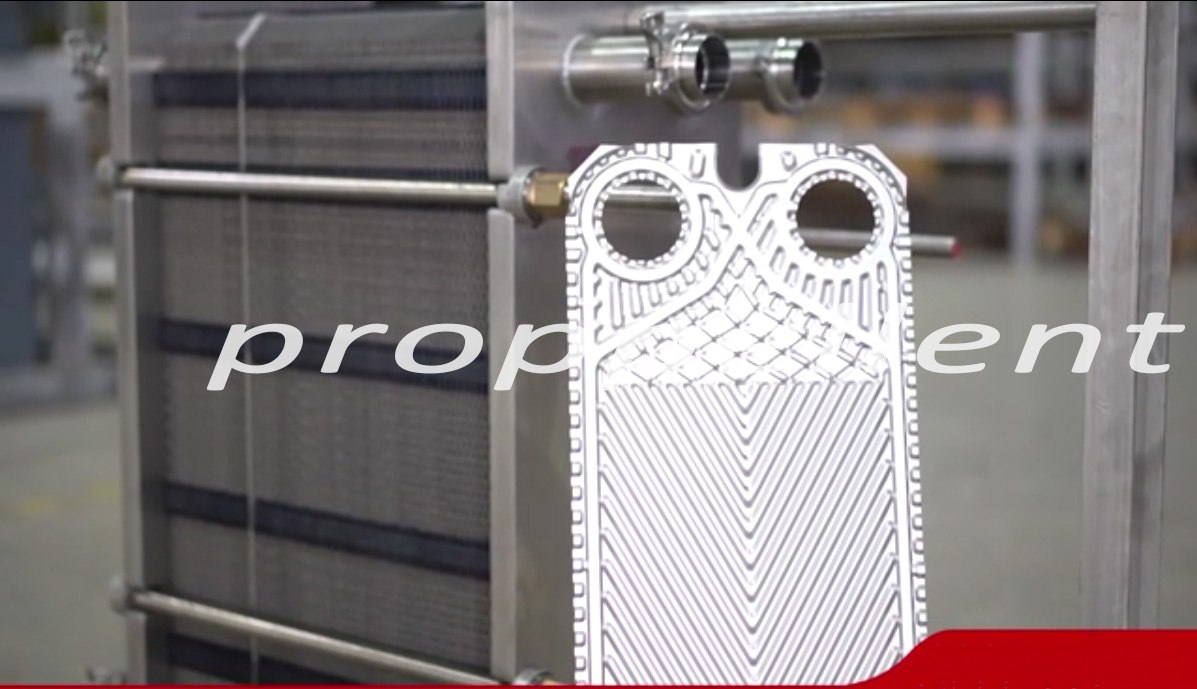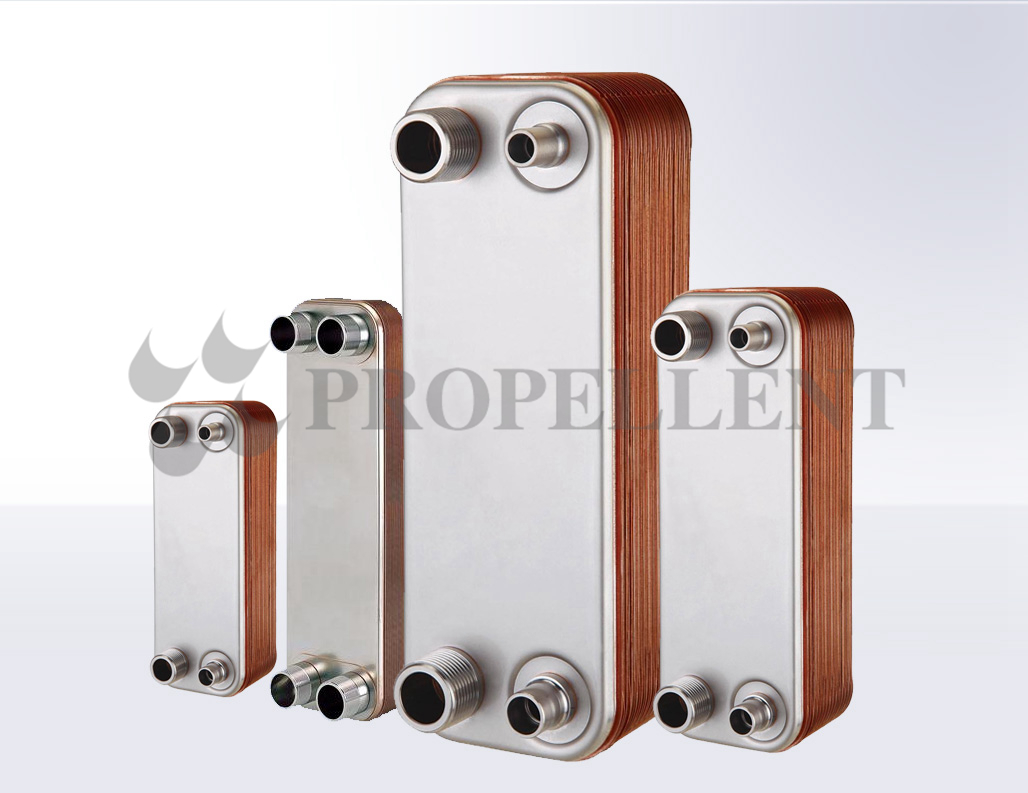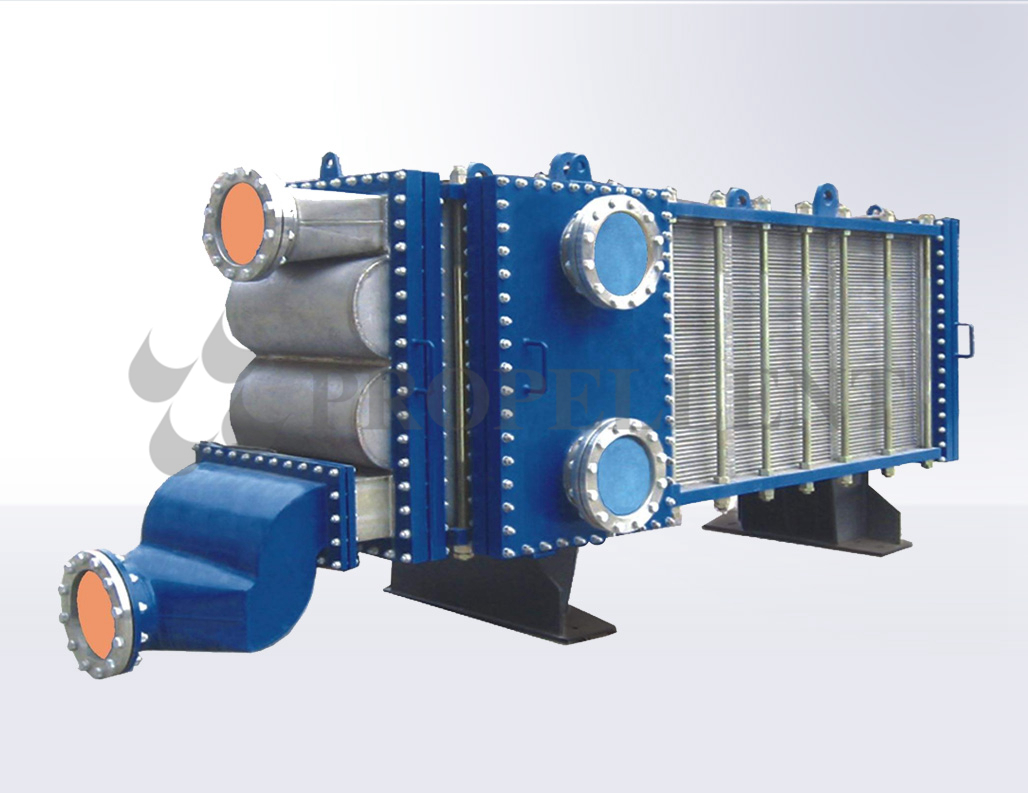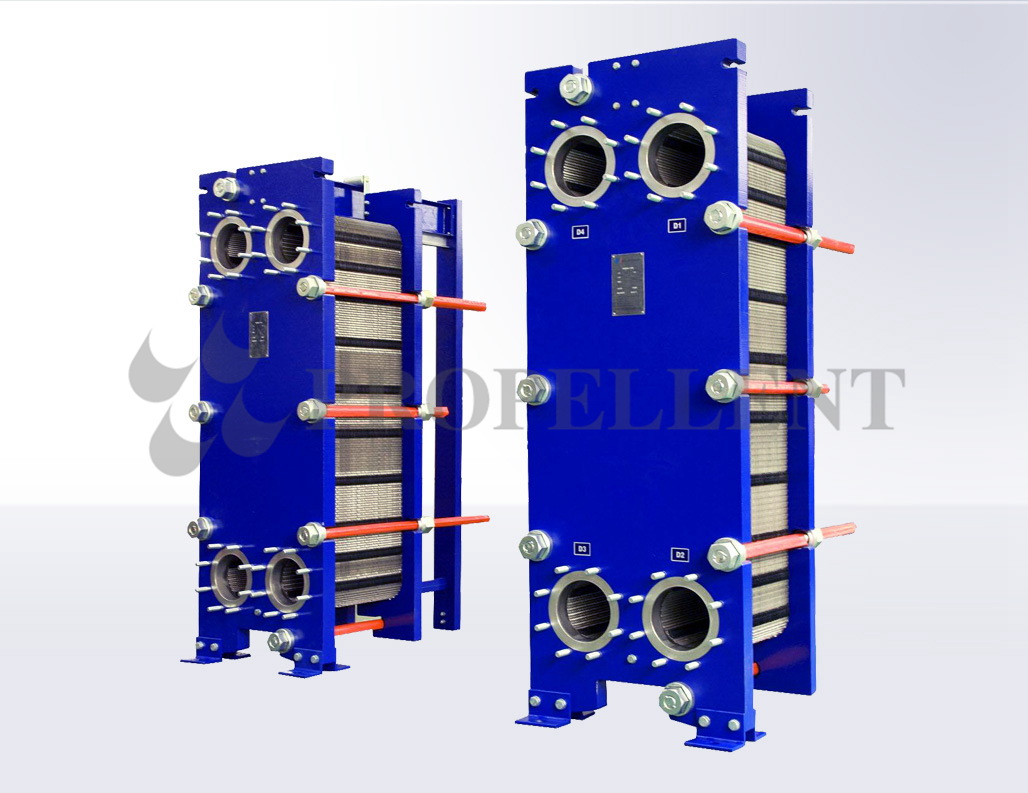News
How to select the plate material for plate heat exchanger unit?
Source
:http://www.puruipule.cn
Time:2024-05-16 10:54:55
Clicks:202
1, stainless steel
Stainless steel is one of the most commonly used plate materials in plate heat exchanger units. It is able to adapt to a variety of medias with excellent corrosion resistance, including acid, alkali, salt and other corrosive media. With good strength and toughness stainless steel plate can withstand higher temperatures and pressures. Stainless steel plate has a long service life and low maintenance cost, so it is widely used in various industrial fields.
2、Titanium
Titanium is a lightweight, high-strength metal material with excellent corrosion resistance. It is especially suitable for seawater, chlorides and other strong corrosive media. Titanium plate have good thermal conductivity, but the price is relatively high. Therefore, in some of the conditions for corrosion occasions, such as seawater desalination, chemical industry and other fields, titanium plate is the ideal choice.
3、Nickel alloy
Nickel alloy is a kind of alloy material with excellent corrosion resistance, especially suitable for high temperature, high pressure and strong corrosive medium. Nickel alloy plate can still maintain good strength and toughness at high temperatures, and is not easy to oxidize and corrode. However, the alloy is more expensive, so it is usually used for special occasions that require high material performance.
4, carbon steel
The price of Carbon steel is relatively low, carbon steel is suitable for general non-corrosive or less corrosive media. However, carbon steel has poor corrosion resistance and is easy to be suffered erosion, resulting in plate damage. Therefore, when using carbon steel plate , We need to take appropriate anti-corrosion measures, such as applying anti-coating.

Stainless steel is one of the most commonly used plate materials in plate heat exchanger units. It is able to adapt to a variety of medias with excellent corrosion resistance, including acid, alkali, salt and other corrosive media. With good strength and toughness stainless steel plate can withstand higher temperatures and pressures. Stainless steel plate has a long service life and low maintenance cost, so it is widely used in various industrial fields.
2、Titanium
Titanium is a lightweight, high-strength metal material with excellent corrosion resistance. It is especially suitable for seawater, chlorides and other strong corrosive media. Titanium plate have good thermal conductivity, but the price is relatively high. Therefore, in some of the conditions for corrosion occasions, such as seawater desalination, chemical industry and other fields, titanium plate is the ideal choice.
3、Nickel alloy
Nickel alloy is a kind of alloy material with excellent corrosion resistance, especially suitable for high temperature, high pressure and strong corrosive medium. Nickel alloy plate can still maintain good strength and toughness at high temperatures, and is not easy to oxidize and corrode. However, the alloy is more expensive, so it is usually used for special occasions that require high material performance.
4, carbon steel
The price of Carbon steel is relatively low, carbon steel is suitable for general non-corrosive or less corrosive media. However, carbon steel has poor corrosion resistance and is easy to be suffered erosion, resulting in plate damage. Therefore, when using carbon steel plate , We need to take appropriate anti-corrosion measures, such as applying anti-coating.

Keywords:plate heat exchanger



